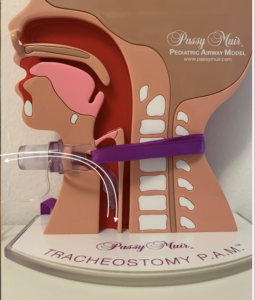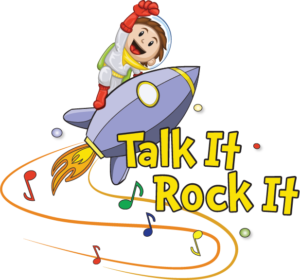Do children with tracheostomy have difficulty with speech?

Children with tracheostomy often have speech delays, articulation disorders, phonological disorders and difficulty with breathing and speech coordination. When a tracheostomy tube is in place, breathing mostly occurs in and out through the tracheostomy tube. Significant airflow through the upper airway may prevent or limit voicing.
Occluding the tracheostomy tube, such as with a speaking valve, allows all exhaled air to be redirected around the tracheostomy tube, through the vocal folds and out the mouth. Children with tracheostomy who are beginning to use a speaking valve often have difficulty learning to use their upper airway for breathing and speech. It can be a frightening time to learn how to breathe through the vocal folds and upper airway.
Note: A clinician who is trained in assessment and placement of a speaking valve should be the one placing the valve and determine if it is appropriate. Please follow the manufacturer’s recommendations for placement.
How can Finding Your Voice-Songs for Kids with Trachs help?
-
 Finding Your Voice – Songs for Kids with Trachs$20.00 – $25.00
Finding Your Voice – Songs for Kids with Trachs$20.00 – $25.00
Finding Your Voice- Songs for Kids with Trachs provides a fun and less stressful approach to learning to speak with a tracheostomy. The songs allow for the child to explore using their upper airway in a fun and enjoyable way. Research has shown that participating in music activates multiple centers of the brain. Music has a positive effect on imitation, vocabulary development interaction skills, phonemic awareness and may reduce anxiety for those on mechanical ventilation. Children LOVE music. It can also provide a distraction during a time of frustration in order to increase speaking valve use.
Finding Your Voice-Songs for Kids with Trachs was developed by a speech-language pathologist, with songs chosen to specifically address the needs of kids with trachs. Many of the songs target difficulty that is common for kids with tracheostomy including improving airflow, improving breath support, vowel production, stops, and nasals. Each child is different and any speech deficits should be assessed and treated according to individual needs.
A note from Nicole DePalma, Speech-Language Pathologist and owner of Tracheostomy LLC
Thank you, Talk It Rock It, for allowing Tracheostomy Education the opportunity to help children with tracheostomy and mechanical ventilation find their voice. Tracheostomy Education is dedicated to improve the safety, care and lives of individuals with tracheostomy through education. We provide a collaborative resource (articles, courses, and a small store) for a variety of medical professions including doctors, nurses, respiratory care providers, speech-language pathologists, and first responders. Patients and families of those affected by tracheostomy can learn more about what to expect with a tracheostomy. Check out tracheostomyeducation.com for more information.
Nicole DePalma, MS CCC-SLP
Speech-Language Pathologist
Found and Owner of Tracheostomy LLC
Tracheostomyeducation.com




